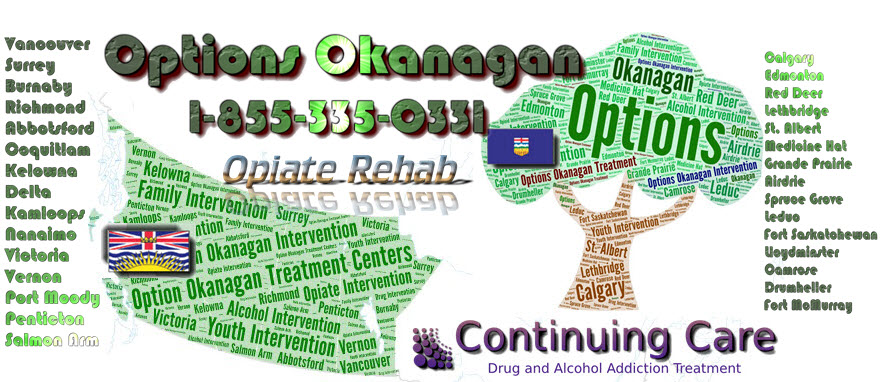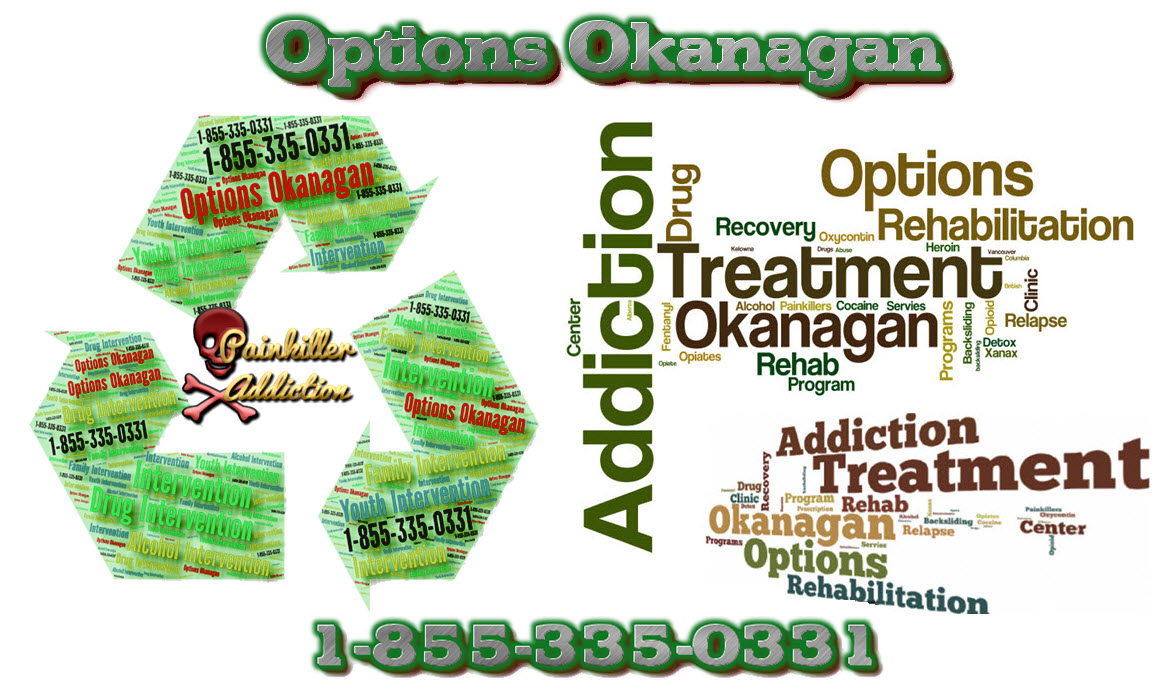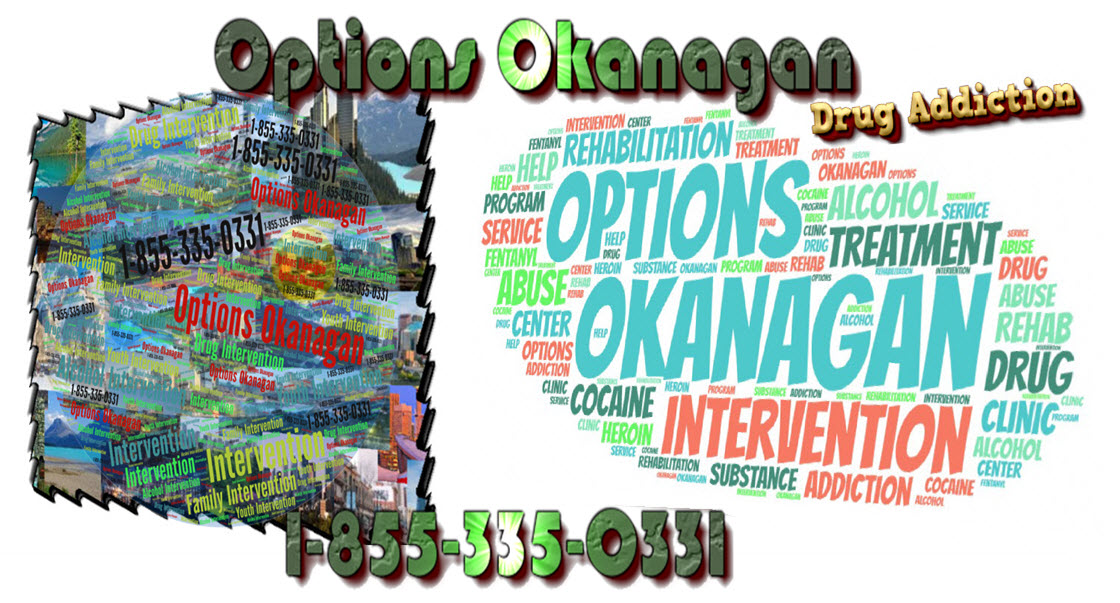Family Interventions Really Are A Powerful Tool For Beating Addiction – Information on drug opioid and alcohol addictions – Opiate Rehab Programs for recovering addicts in British Columbia and Alberta – Options Treatment Center in Kelowna, British Columbia treating drug, opiate, fentanyl, heroin and alcohol addiction and recovery.
Opioid Rehab In Alberta And BC
Substance abuse (drug, alcohol) issues do not just affect those with addictions – additionally, they affect their close relatives and friends. Dealing with a loved one having an addiction will bring up an array of emotions. Members of the family may go from feeling sad and despondent one moment to being extremely angry the next. They can even have feelings of hopelessness, just like the individual who they love has disappeared and is never finding their way back.
Many times, when individuals confront loved ones with addictions, these emotions rise to the surface, causing them to lash outside in anger or perhaps to cry uncontrollably. Unfortunately, this may wind up backfiring, driving the individual with all the addiction further away. Individuals with substance abuse problems usually carry an incredible level of guilt. This guilt could become overwhelming once they view the effects that the actions are experiencing on their own friends and family members. Consequently, they can pull a little bit more away, falling deeper into their addiction. For this reason, drug counselors as well as other professionals recommend taking a different approach for families who want to help someone by having an addiction. Holding an intervention is among the most effective ways to get through to an addict, convincing them that they really need aid to overcome their problem.
One common misconception that lots of families have is that the person coping with the substance abuse problem needs to bottom out before they will be happy to accept help. In fact, however, the more an addiction continues on, the more difficult it is to convince anyone to improve their ways. Additionally, most addictions have serious health repercussions, which could become increasingly severe the more time the addiction continues. Seeking treatment at the beginning of the addiction cycle is truly the best choice as it minimizes the long-term impact of the addiction on the person with the substance abuse problem.
Despite the fact that interventions are highly effective, they may be far from easy. The procedure should be customized for every situation, taking into account the needs of the family unit along with the personality of the addict. In just about every intervention, emotions run high, this is why most families think it is beneficial to work with an expert who is not emotionally in the situation when planning an intervention. They can address any issues that appear, both through the time leading as much as the intervention and on the day from the intervention itself. An experienced interventionist can also help the household select which rehab facility will provide the addict with the most effective chance at recovery. They are able to assist with any preparations before the person’s arrival in treatment.
Just about the most important aspects of any intervention is being sure that the family members are educated about how exactly the method works. Everyone engaging in the intervention must have a specific set of steps. Deviating through the plan at all can cause the intervention to fail.
The interventionist can help each member of the family understand their role in the process and will provide step-by-step instructions about how the intervention will proceed. They can also help the family deal with any logistical details. This requires deciding in which the intervention is going to be held, scheduling a period for it, and planning ways to get the addict towards the location without becoming suspicious beforehand.
A lot of people instantly make an effort to close themselves off while they are confronted by their family and friends with an intervention. The role of each loved one would be to explain to the person how their addiction has personally impacted them. Additionally, it is to remind them of good their lives could be if they consent to seek help.
Interventions typically have a superior success rate. Most people who are confronted by their family and friends end up agreeing to have help. As soon as they accept to enter a rehab treatment program, it is recommended to drive them there without delay. Relatives should have transportation in place for taking them directly to the treatment center in the intervention without any stops in the middle. Otherwise, the addict may change their mind before they check-in.
During the intervention, also, it is necessary for members of the family to clarify to the person with the substance abuse problem that there will be serious consequences when they don’t say yes to seek treatment. This really is a time for relatives to stand up for themselves, refusing to become doormats for the addict any further.
Typically, these consequences are made to increase the pressure on the addict to get in a therapy rehab program. For example, a member of the family may tell the addict that they can stop providing financial support for them if they do not say yes to enter a treatment program. In this instance, the consequence can certainly make the addict’s life much harder, forcing them to reevaluate their decision and improving the likelihood that they can say yes to seek treatment. It is vital for loved ones to follow through on the consequences in case the person refuses to enter into a treatment program. Otherwise, their actions continue negatively affecting their lives with their loved ones.
Addictions are incredibly challenging to overcome. Families may need to conduct multiple interventions before someone will say yes to enter a rehab program. The trick is to keep seeking help for the person rather than letting go. Employing a professional interventionist can dramatically improve the possibilities of success. This is especially true if previous interventions did not work for the addict. With the guidance of professionals, families can make an intervention work.
Options Okanagan Opiate and Alcohol Treatment Centers in Kelowna, Salmon Arm and Vancouver, British Columbia – Men and Women are recovering and healing from Alcohol and Drug Abuse at our treatment center here in the Okanagan right now.
Our unique and distinctive Opiate Drug and Alcohol treatment program allows men and women to come in from Calgary as well as Edmonton as we offer airport pickup.
Numerous clients come to us from Vancouver, Calgary, and Edmonton and other locations in Alberta and even other provinces for Opiate addiction treatment, heroin drug treatment, many other drug and alcohol addictions for rehabilitation because of the uniqueness of our treatment center.
Our (Kelowna ) Alcohol and Drug Treatment Program Location:
(Not Mailing Address) Contact Us – Web Page
For Mail Delivery :: Please contact each center for correct mailing addresses, also this location is the location of our residential treatment programs in Kelowna. Please call Toll Free 1-855-335-0331 to contact the treatment center you are going to for the address and directions.
Options Okanagan Drug and Opiate Treatment Center
551 Sherrydale Crescent, Kelowna, British Columbia, V1V 2E6
Toll-Free Phone Number: 1-855-335-0331




